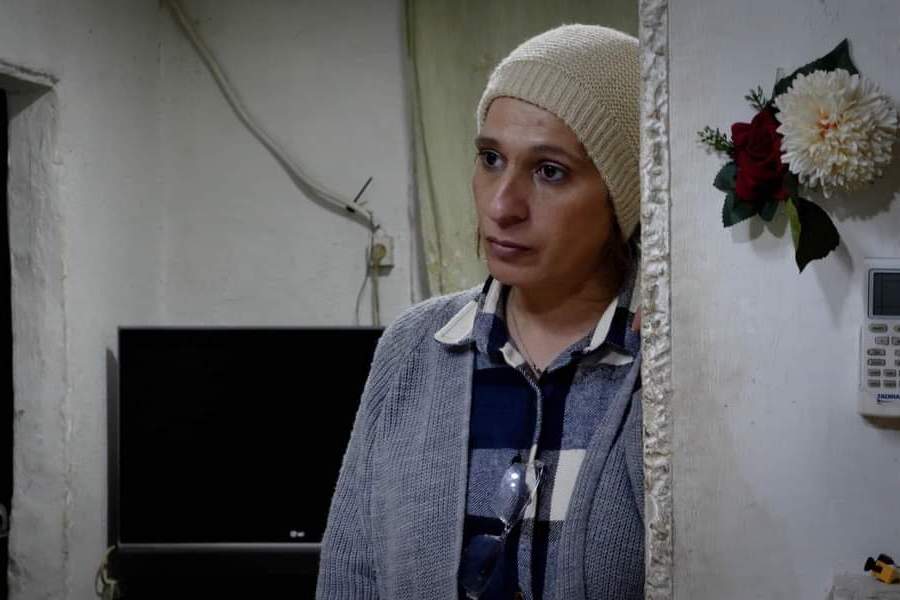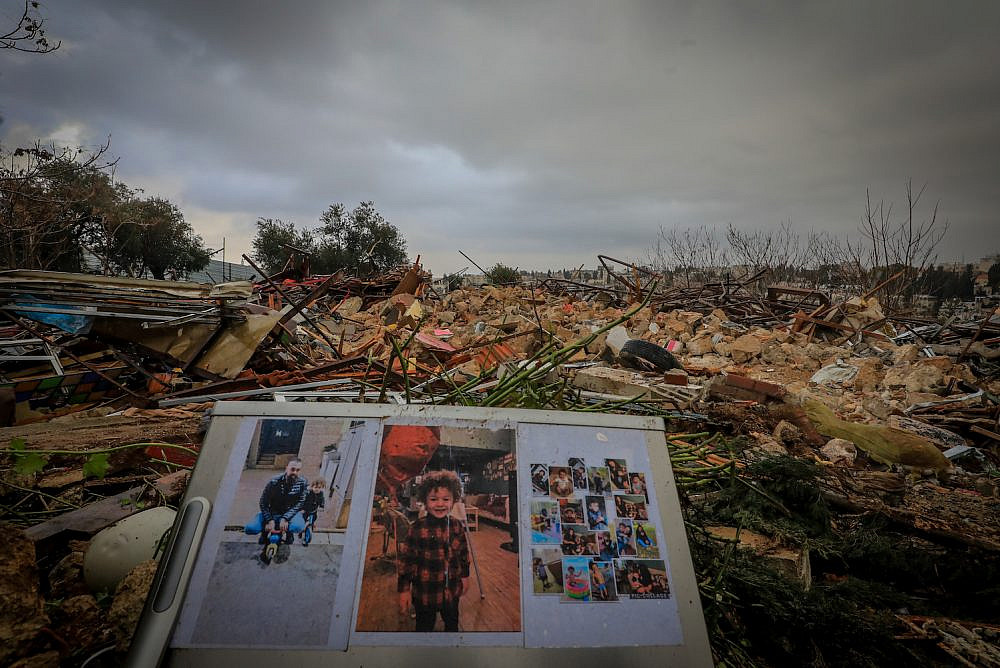This article was published in partnership with Local Call.
Israeli security forces demolished the home of the Salhiyeh family and forcibly expelled its residents in the East Jerusalem neighborhood of Sheikh Jarrah during the early hours of the morning on Wednesday.
Police raided the house around 3:15 a.m., violently kicking out the family and activists who had arrived to defend the family home. According to Palestinian and Israeli activists who were at the scene, officers cut electricity to the house, before using stun grenades and arresting 18 people, including members of the Salhiyeh family, Palestinian activists, and five Israeli activists. All of the Israeli activists and some of the Palestinians have been released, while others remain in Israeli custody — including Mahmoud, the family’s father.
Following the expulsion, bulldozers entered and destroyed the family home, where Lital Salhiyeh, her husband Mahmoud, their four children, and Mahmoud’s mother lived. The remains of the home and the family’s belongings, which included photo albums and children’s backpacks, laid strewn out in the rubble.
“All of a sudden we heard booms. I jumped out of bed and turned on the light — but there was no electricity in the house,” Lital told me following the demolition. “I lifted my head, and all I saw around me was hundreds of lights from helmets. It was a terrifying sight.”
Lital, an Israeli Jew who is originally from Rishon LeZion, said she had gone to bed half an hour before police forces burst into her home. Once she heard the booms, she jumped out of bed and began to run. “I was looking for my little daughter Aya, who’s nine years old and was sleeping in the other room with her aunt. I wanted to get to her. A policeman caught me and said, ‘What are you doing?’”

“Now Aya is with me. It’s me and her in our pajamas. She is traumatized. She does not sleep at night. She is silent, doesn’t utter a word. All I care about right now is that my family comes out of detention — that’s it. I saw Mahmoud and my son Amir being arrested with my own eyes, but I know nothing about Adal and Nur. Nur is 16 years old.”
The Salhiyeh family had lived in Sheikh Jarrah ever since they were expelled from their family home in the Palestinian village of Ayn Karim (today Ein Kerem) in West Jerusalem, during the Nakba. In 1958, the family purchased a six dunam plot of land in the neighborhood. In 2017, the Jerusalem Municipality expropriated it for public purposes in order to establish a school and kindergarten. The family petitioned against the eviction, but the courts upheld the decision.
The family won a last-minute reprieve on Monday when police forces arrived to carry out the demolition, only to find that Mahmoud Salhiyeh, along with several youths, had secured his family’s home with gas canisters and threatened to detonate them if the eviction went ahead. The police eventually backed off, but left only after demolishing other structures on the family’s land — including a plant nursery and a barber shop.
In 2021, the Jerusalem District Court ruled in favor of the municipality and allowed the eviction to proceed. Last week, the attorney representing the Salhiyeh family lodged a request to halt the expulsions, claiming that the eviction order only applies to the parents and not to the other members of the family. While the court asked the municipality for a response to the family’s claims, it did not delay or halt the order.
“I have nowhere to go, I have no home,” Lital said. “What will we do? Will we go live with another family? We are a lot of people. They destroyed the house so we would have nowhere to go back to. How do they expect my children to grow up and not be full of anger and hatred against them? This is no longer my country. After today, this is not my country.”


